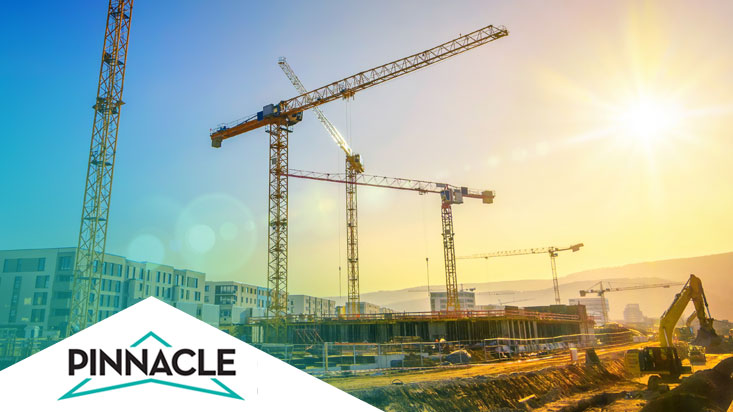Subdivision bonds are, in basic terms, a guarantee that contractors will do what they have been contracted to do, and to meet their obligations. A subdivision bond is a contract performance bond that is sometimes known as a variety of other names. You may have heard them being called developer bonds, land improvement bonds, a site improvement bond, completion bond, or a performance bond. They are all still subdivision bonds. These subdivision bonds will provide a guarantee that any changes or improvements that will be made to land, are within a subdivision.
Call: (844) 612-7238 to get started
 Subdivision bonds are needed when contractors start on building work by many local authorities or governments. They are needed and are important because they are a guarantee for the authority commissioning the work, that the contractor will complete the work as stated, whether that be something like sidewalk maintenance, grading changes, electrical upgrades and so on. Subdivision bonds are needed as they offer a guarantee that the work will be carried out by the contractor in the required time frame. Put simply, subdivision bonds are like a form of insurance. They ensure that the agency or authority wanting the work to be done, will get the right money if the contractor fails to complete the project as required or in a timely fashion.
Subdivision bonds are needed when contractors start on building work by many local authorities or governments. They are needed and are important because they are a guarantee for the authority commissioning the work, that the contractor will complete the work as stated, whether that be something like sidewalk maintenance, grading changes, electrical upgrades and so on. Subdivision bonds are needed as they offer a guarantee that the work will be carried out by the contractor in the required time frame. Put simply, subdivision bonds are like a form of insurance. They ensure that the agency or authority wanting the work to be done, will get the right money if the contractor fails to complete the project as required or in a timely fashion.
Subcontractor bonds will involve three key parties
The three parties that are involved in subcontractor bonds are generally called the principal, the obligee, and the surety.
- The principle is the business or the contractor who is looking to purchase the subdivision bond. They will be carrying out the work.
- The obligee will be the government agency that has commissioned the work and will require the purchase of the bond.
- The surety is the underwriter of the subdivision bond, who the principle will come to. This is us and our team of expert in-house bond underwriters.
As a contractor or a developer, purchasing a subdivision bond will mean that the surety will agree to pay for the cost of the improvements to the obligee. This will happen if you as the principal fail to complete the improvement work that was set out or required. The surety can then get reimbursement from you the contractor, at a later date. So it doesn’t mean that the contractor (principal) is off the hook. Due to the terms and conditions of the bond agreement that will have been undertaken before the start of the improvement work, the surety bond company will be liable to get reimbursement, as mentioned above. Usually, this will be the last resort, because of the terms and conditions that will have been set out in the bond contract, before the improvements took place. If something goes wrong, though, and the terms are not met, then this is what you as a principle can look to expect.
The cost and convenience of subdivision bonds
 As a general rule, subdivision or construction performance bonds can cost around 3% of the total bond amount. However, there are a number of factors that can (and do) impact the price. It is no surprise that the terms of the contract, as well as the size of the project, will be a vital part of the consideration for the subdivision contractors bonds company like ourselves. What a lot of people don’t realize in this process, is that the contractor’s history is something that is also considered when working out pricing for a bond. In particular, a bond company might look at work that the contractor has done previously, as well as the credit score, in order to measure the ‘trustworthiness’ of the contractor.
As a general rule, subdivision or construction performance bonds can cost around 3% of the total bond amount. However, there are a number of factors that can (and do) impact the price. It is no surprise that the terms of the contract, as well as the size of the project, will be a vital part of the consideration for the subdivision contractors bonds company like ourselves. What a lot of people don’t realize in this process, is that the contractor’s history is something that is also considered when working out pricing for a bond. In particular, a bond company might look at work that the contractor has done previously, as well as the credit score, in order to measure the ‘trustworthiness’ of the contractor.
How is a subdivision bond calculated?
When you know what the work to undertake is, a qualified engineer will provide an estimate for how much the subdivision bond will be. This is done by calculating the improvements that are needed, and the bind will then be issued as a whole number or a percentage of this calculation. If your surety bond provider offers subdivision bonds, then they are usually given with a two-year term. As a result, any subdivision bonds will need to be renewed each year. This will carry on until the government agency releases the bond obligation back to the surety.
What Is Regulated?
The governing agency will generally deal with any issues that occur with the pubic works bonds. However, one of the main things that are regulated is the installation of any public improvements. As a result, the subdivision bond authority can stipulate what the actual improvements needed are, as well as the fact that they will also sort out how much time the developer or landowner has, in order to complete the project.
Acquiring a subdivision bond can be somewhat of a complicated process, as things like credit checks are required, as well as financial statements, forms, outlines of projects to be checked, and other funding information. Pinnacle Surety are experts at helping and informing contractors and developers so that they will be better able to secure subdivision bonds. We are here to help and to make the process simple and convenient. For additional information regarding subdivision bonds, please contact an expert at Pinnacle Surety. Our team will be pleased to help you with your inquiry.


